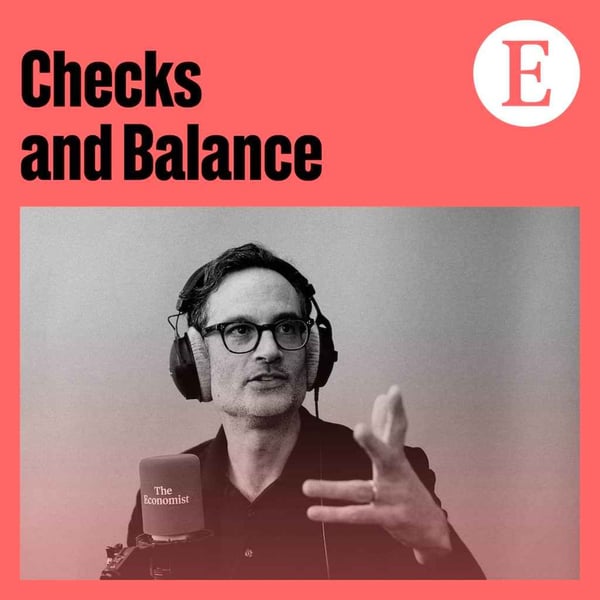Checks and Balance: Affirmative redaction
Checks and Balance from The Economist
The Economist
4.6 • 1.7K Ratings
🗓️ 7 July 2023
⏱️ 50 minutes
🧾️ Download transcript
Summary
America’s Supreme Court has ended the use of race-based affirmative action in college admissions. It is 45 years since the court gave its blessing to such practices but, given that it now has a six-justice conservative majority sceptical of using racial criteria, the decision was no surprise. Why did the court do this, and was it right to?
The University of Chicago’s Geoffrey Stone explains why he thinks it was wrong. We go back to the first time the court ruled on affirmative action in admissions. And The Economist’s Steve Mazie analyses the justices’ opinions and dissents.
John Prideaux hosts with Charlotte Howard and Idrees Kahloon.
You can now find every episode of Checks and Balance in one place and sign up to our weekly newsletter. For full access to print, digital and audio editions, as well as exclusive live events, subscribe to The Economist at economist.com/uspod.
Hosted on Acast. See acast.com/privacy for more information.
Transcript
Click on a timestamp to play from that location
| 0:00.0 | This is a pained advertisement from BetterHelp. |
| 0:02.5 | Checks and balance from the economist is sponsored by BetterHelp Therapy Online. |
| 0:07.2 | Life comes with a lot of decisions and it's hard to know the right path sometimes. |
| 0:11.5 | A therapist can help you map out what you really want so you can get excited about the future. |
| 0:16.7 | BetterHelp offers convenient professional online therapy on your schedule |
| 0:20.8 | by phone, chat or video call. |
| 0:23.0 | Get 10% off your first month at BetterHelp.com slashchecks. |
| 0:28.2 | She once described herself as the perfect affirmative action baby. |
| 0:39.2 | The child of Puerto Rican parents, she grew up in a public housing project in the South Bronx. |
| 0:45.5 | Her mother was a nurse and her father, a factory worker, died when she was nine. |
| 0:51.7 | But she studied hard and got into Princeton. Even though she reckoned her test scores weren't |
| 0:57.1 | as good as most of her peers. If it had been based on those test scores alone |
| 1:02.8 | and her background hadn't been considered, she thought it was highly questionable she would have |
| 1:07.4 | been accepted. She came top of her class and Yale and a storied law career followed. |
| 1:15.3 | Then in 2009 Sonia Sotomayor was nominated by President Barack Obama to sit on the Supreme Court. |
| 1:23.2 | Justice Sotomayor believes that without race-conscious admissions a poor Latina from the Bronx |
| 1:29.5 | would not have made it to the highest court in the land. |
| 1:33.2 | That idea will now be tested after her conservative colleagues ended affirmative action |
| 1:38.3 | at America's colleges and universities. |
| 1:42.2 | I'm John Prado and this is Checks and Balance from the Economist. |
| 1:46.2 | Each week we take one big theme, shaping American politics and explore it in depth. |
| 2:02.1 | Today was the Supreme Court right to overturn affirmative action. |
... |
Please login to see the full transcript.
Disclaimer: The podcast and artwork embedded on this page are from The Economist, and are the property of its owner and not affiliated with or endorsed by Tapesearch.
Generated transcripts are the property of The Economist and are distributed freely under the Fair Use doctrine. Transcripts generated by Tapesearch are not guaranteed to be accurate.
Copyright © Tapesearch 2025.

